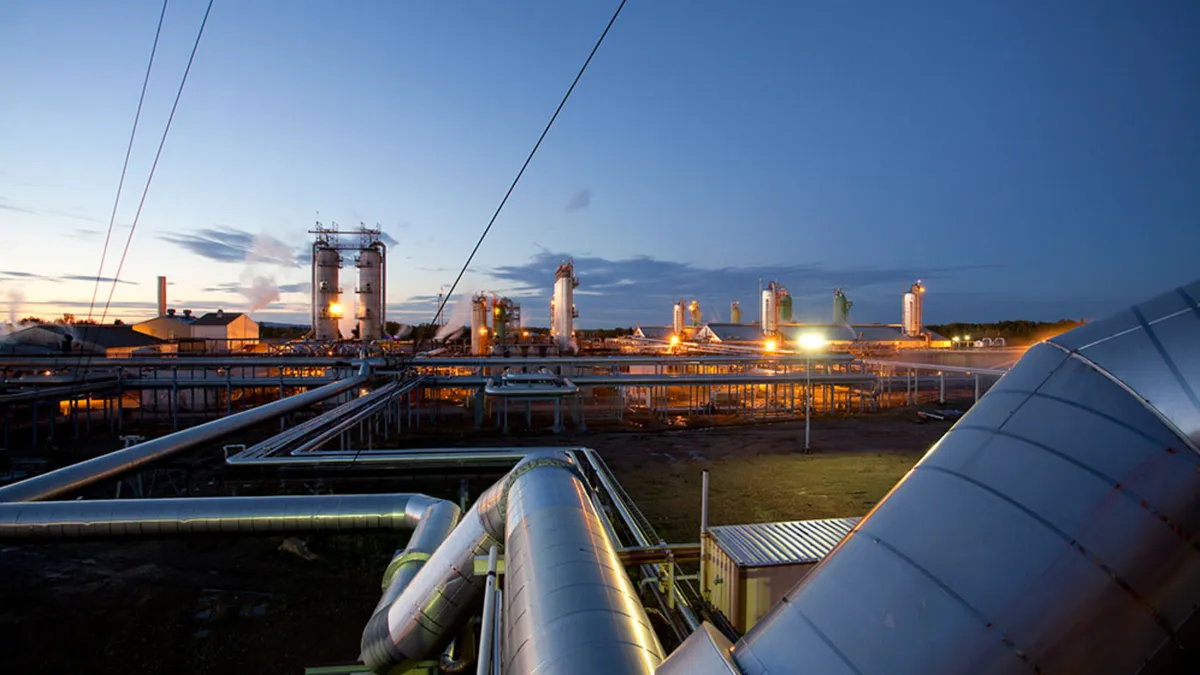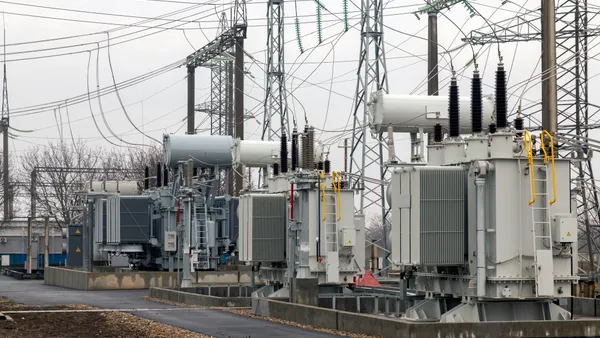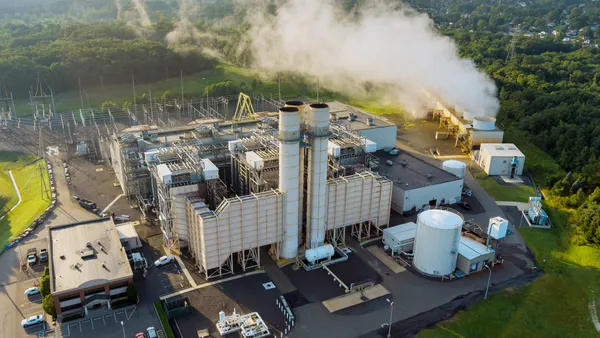Dive Brief:
- Current estimates of methane emissions produced by natural gas plants could significantly underestimate the amount released by those facilities, according to a new study from Purdue University.
- Researchers in the Purdue study noted that methane emission rates from gas-fired power plants may be two-to-120 times higher than previously calculated by the U.S. Environmental Protection Agency. The agency used data provided by facility operators to the EPA's Greenhouse Gas Reporting Program.
- But the study notes that, despite the amount of methane leaking from gas plants, the fuel resource is still cleaner than burning coal.
Dive Insight:
Over the past decade, utilities have switched to cleaner burning natural gas as prices fall and coal generation becomes uneconomic. Unlike coal, natural gas does not release as much carbon dioxide — the primary contributor to global warming — but it does release a much more potent greenhouse gas: methane.
Methane can contribute more to global warming over the short term than coal if significant amounts leak out of a facility before burning, the study noted. If more than 3% of natural gas leaks from the facility, it has "a bigger climate effect than burning coal," according the study.
So far, the amount of methane discharged from gas plants is well below the 3% threshold, according to Paul Shepson, one of the researchers. Even adding in previous estimates of methane links within the supply chain of 1.7%, the total amount of methane emissions still rest below the 3% breaking point.
Leaky compressors, valves and industrial hardware are the biggest culprits for methane leaks from plants, the study says.
The good news, Shepson said, "is that you can take a specialized infrared camera around the plant to find the leaks and then patch the them with a wad of bubblegum. I'm joking about that, of course, but the point is that it's a relatively easy thing to fix."
Since 2010, low natural gas have helped the generation resource edge coal out of the nation's power mix. If the Trump administration follows through on promises to roll back the EPA's methane rules and propose easier siting for pipelines, gas prices could remain low, meaning investment in gas plants will likely continue at the expense of other resources.














